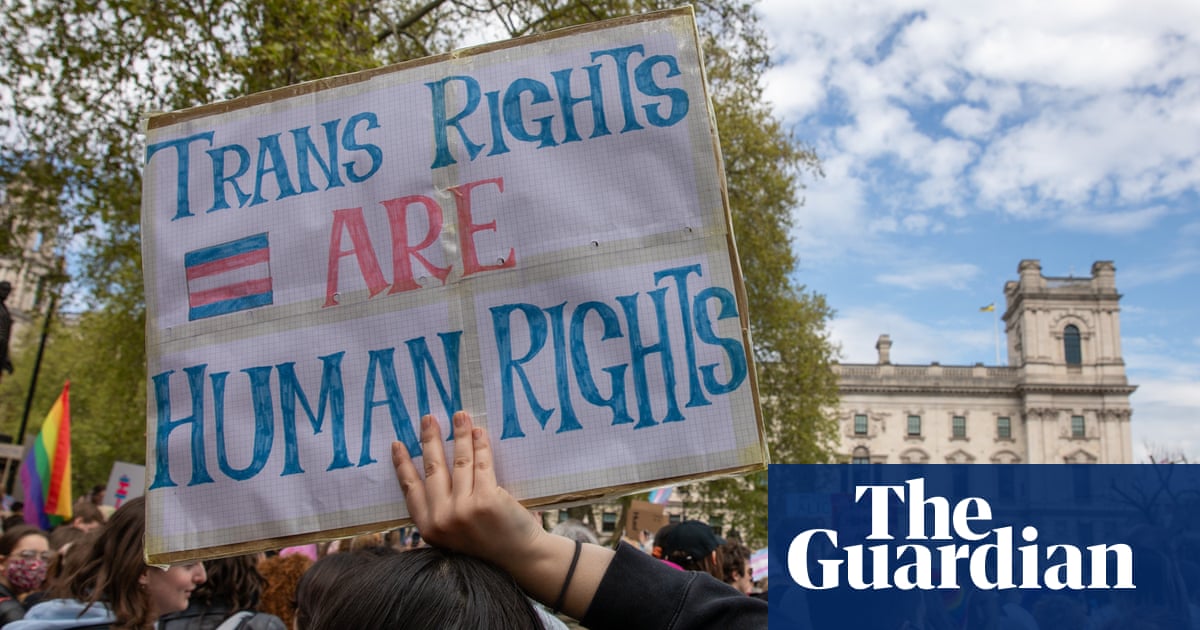The UK’s equality watchdog is expected to give in to demands that it allow more time to consider its formal guidance on the supreme court ruling about gender issues, after what sources say has been a big backlash from staff and stakeholders.
Some insiders believe the Equality and Human Rights Commission (EHRC) may be forced into a U-turn on its initial response, which was criticised as overly literal in defining how organisations should respond to the court decision that “woman” in the Equality Act refers only to a biological woman.
The EHRC’sinterim advice, published nine days after the supreme court decision, set out that transgender people should not be allowed to use toilets of the gender they live as, and that in some cases they also cannot use toilets of their birth sex.
Trans support groups have reported to the Guardian that employers are already asking trans staff to use different facilities, in many cases causing distress and outing them to colleagues.
The EHRC’s chair, Kishwer Falkner, said the watchdog aimed to have its formal response to the ruling – an updated code of practice for organisations trying to interpret the Equality Act – ready by the summer, giving just two weeks for people to submit views on how this should work.
Last week, the House of Commons women and equalities committee (WEC)wrote to Lady Falknerto request this be extended to at least six weeks, and to urge that the process did not end up ignoring the needs of transgender people.
EHRC insiders say the commission will agree to a six-week consultation, and that the eventual code of practice could row back from the interpretation set out in the interim guidance andin media commentsmade by Falkner.
Sources said there was particular worry about how well Falkner and herteam of commissioners– all but one of whom were appointed by Conservative governments – will be able to justify their stance when they are questioned by the WEC next month.
One EHRC source said there had been significant disquiet among staff about the interim guidance and the way it was drawn up before being published on 25 April.
They said: “Most people, including some fairly senior ones, had no idea the interim guidance was coming until it was published late on the Friday evening.
“They woke up to texts from family members and friends saying: ‘What’s going on?’ Staff working on sex and gender issues hadn’t been told, and nor had the duty press staff who were meant to explain it to the media. It was completely shambolic.
“This is, understandably, a fairly inclusive workplace and quite a few staff have trans friends or even partners. They suddenly had to try and explain this guidance which made no sense.
“The pushback has been really strong. Some stakeholders are saying they can no longer work with us. Loads of staff say they’re looking for other jobs. The approach from the chair and senior leadership has been really secretive and paranoid.”
The Guardian understands that at a recent EHRC all-staff meeting – a regular event, not one called specifically to discuss the ruling – questions from staff to Falkner and the chief executive, John Kirkpatrick, were dominated by concerns about the interim advice.
In particular staffers voiced concern that the imperative in the supreme court’s judgment not to treat the ruling as a victory for either “side” had been lost, and called for the commission to make clearer its initial affirmation that it remained committed to protecting transgender people from discrimination.
On Tuesday, lawyers for the leading advocacy group TransLucent wrote to the EHRC,warning thatstatements made by Falkner risked prejudicing the outcome of the consultation.
In the letter from the cross-party WEC asking the commission to extend the consultation timetable, Sarah Owen, its chair, said many transgender people were “anxious and unsure about where this ruling leaves them”.
The letter, sent on behalf of the whole committee, asked Falkner to give information on a number of points, including: “What steps the EHRC will be taking to ensure that the code of practice is supportive of the rights of all people (as noted in the supreme court judgment).”
The EHRC was contacted for comment.
